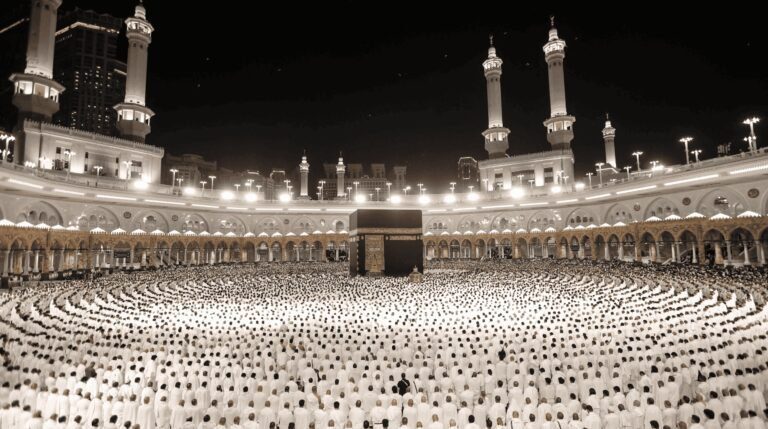The Saudi National Meteorological Center has announced that the 2025 Hajj season will be the final pilgrimage held during the peak summer heat until 2042. Starting in 2026, the Islamic pilgrimage will gradually shift into cooler seasons, offering relief for millions of Muslims who travel to Mecca each year.
This change happens because the Islamic lunar calendar shifts the Hajj date about 10 days earlier on the Gregorian calendar each year. From 2026 to 2033, Hajj will fall in the spring. After that, it will move into a winter cycle, which will last until 2041. The pilgrimage will return to the summer months in 2042 and remain there for nine years.
Pilgrims have faced extreme heat in recent seasons. During Hajj 2024, temperatures in Mecca reached between 46°C and 51°C. On one of the hottest days, more than 2,760 cases of heatstroke were recorded, along with multiple heat-related deaths.
Saudi Arabia Prepares for Final Hot-Weather Hajj Season
Saudi officials have worked to reduce the risks tied to the intense summer heat. They have added shaded areas, installed more water stations, deployed mobile cooling units, and launched public campaigns to raise heat safety awareness.
In 2024, Saudi Arabia expanded its weather-monitoring network. The Kingdom installed 33 new weather stations and used mobile radar systems to improve real-time climate tracking in pilgrimage zones. These efforts help authorities respond faster to extreme weather and protect pilgrims on-site.
With Hajj 2025 approaching, Saudi Arabia expects to host over 1.8 million pilgrims. This year’s pilgrimage will be the last under the harsh summer sun before the seasonal shift begins, offering what many hope will be a safer and more comfortable future for attendees.
Pilgrimage Will Shift to Cooler Spring and Winter Months From 2026
The upcoming shift to cooler seasons promises to ease health risks for pilgrims, especially the elderly and those unaccustomed to high temperatures. Saudi Arabia sees this change as a step toward making the pilgrimage more sustainable and accessible in the years ahead.
The Kingdom has also focused on improving services for pilgrims. Digital tools like the Nusuk app and portal now simplify travel planning, booking, and official registration. Officials continue to warn against scams and encourage pilgrims to verify licensed Hajj organizers using approved platforms.
As Saudi Arabia prepares for the last summer Hajj until 2042, its measures highlight a strong commitment to safety and reflect the country’s broader efforts to adapt to climate challenges.


